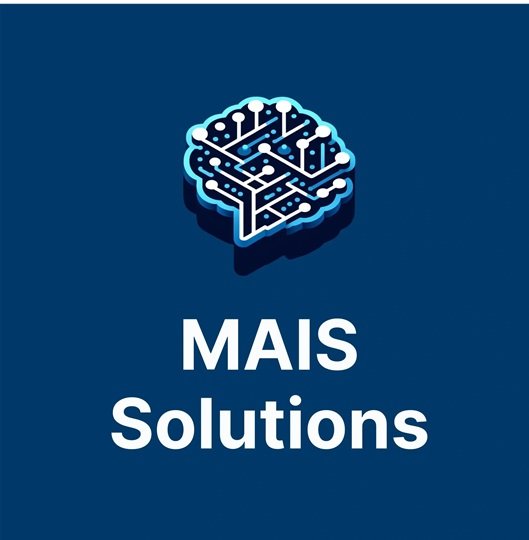Your cart is currently empty!
Cloud
Back to: QA Guide to IT Training
Introduction
Cloud computing has fundamentally changed the way organizations operate, offering scalable, cost-efficient, and flexible solutions for businesses of all sizes. Whether you are an IT professional, a business leader, or an aspiring cloud engineer, a strong understanding of cloud platforms is critical for staying competitive in today’s digital economy.
This lesson provides an in-depth exploration of three major cloud platforms—AWS, Azure, and Google Cloud Platform (GCP)—along with enterprise solutions such as Oracle Cloud and Microsoft 365. By mastering these technologies, organizations can improve efficiency, security, and overall performance.
Understanding Cloud Literacy & Implementation
Cloud literacy is more than just knowing what the cloud is; it involves understanding how to implement, manage, and optimize cloud solutions efficiently. Companies across industries are adopting cloud computing to modernize their IT infrastructure, enhance business agility, and improve data security.
To succeed in cloud computing roles, professionals must understand:
- Cloud Adoption Frameworks: These structured methodologies help organizations transition to cloud solutions, aligning business and IT strategies.
- Networking Fundamentals: Configuring cloud networks, managing data flows, and ensuring high availability are critical skills.
- Cloud Cost Optimization: Controlling cloud expenses through reserved instances, auto-scaling, and resource monitoring ensures organizations maximize their cloud investments.
- Security and Compliance: Cloud security frameworks ensure compliance with industry regulations while protecting sensitive data.
Deep Dive into AWS – The Market Leader
AWS (Amazon Web Services) remains the dominant cloud provider, offering a vast array of services that cater to enterprises, startups, and individual developers. Its extensive ecosystem enables businesses to build, deploy, and manage cloud applications with high reliability and scalability.
Key AWS Services
- Compute & Containers: AWS offers serverless computing with AWS Lambda, virtual machines via EC2, and container orchestration through Amazon ECS and EKS.
- Networking & Storage: AWS provides secure networking solutions like Virtual Private Cloud (VPC) and scalable storage options like Amazon S3 and EBS.
- Security & Compliance: AWS delivers strong security controls through IAM (Identity and Access Management), AWS GuardDuty for threat detection, and AWS Config for compliance monitoring.
- AI & Machine Learning: AWS SageMaker enables businesses to develop and deploy machine learning models, while AWS AI services streamline automation and predictive analytics.
Hands-on Labs
Practical AWS exercises include:
- Deploying an AWS Lambda function and integrating it with cloud applications.
- Configuring IAM roles and permissions to secure an AWS environment.
- Setting up Amazon S3 storage and implementing lifecycle management policies.
Exploring Microsoft Azure – Enterprise Cloud Solutions
Microsoft Azure is widely used by enterprises for its deep integration with business applications and AI-powered solutions. As a leading cloud platform, Azure provides secure, scalable infrastructure for modern IT operations.
Key Azure Services
- Compute & Networking: Azure offers a range of solutions including Virtual Machines (VMs), Kubernetes services, and advanced networking tools for cloud applications.
- Security & Compliance: Security features such as Role-Based Access Control (RBAC), Microsoft Sentinel, and Azure Key Vault enhance enterprise protection.
- Machine Learning & AI: AI-driven solutions such as Azure OpenAI, ML workflows, and chatbot development provide automation capabilities.
Hands-on Labs
QA’s Azure labs focus on:
- Deploying a chatbot using Azure AI services.
- Implementing SQL security best practices in an Azure database.
- Configuring Microsoft 365 security settings for compliance and governance.
Google Cloud Platform (GCP) – AI and Data-Centric Cloud
GCP is a leader in AI-powered cloud computing and data analytics, making it an ideal platform for businesses that rely on big data and artificial intelligence.
Key GCP Services
- Compute & Containers: GCP’s Kubernetes Engine and Cloud Functions support large-scale, distributed applications.
- Data & AI: BigQuery enables enterprise-level data analysis, while AI model deployment and cloud data integration drive innovation.
- Security & Identity: Google IAM policies, data encryption techniques, and security monitoring tools enhance cloud protection.
Hands-on Labs
GCP lab exercises include:
- Setting up a Google Cloud Storage bucket and managing data access controls.
- Automating infrastructure deployment using Terraform on GCP.
- Developing and deploying a machine learning model on AI Platform.
Enterprise Solutions – Oracle Cloud and Microsoft 365
Beyond public cloud providers, many organizations rely on specialized cloud solutions for enterprise IT management. Oracle Cloud and Microsoft 365 play a significant role in business productivity and data security.
Oracle Cloud
Oracle’s cloud platform focuses on database solutions, cloud security, and enterprise applications. Key features include:
- Autonomous Database Management: Oracle Cloud automates database provisioning, tuning, and security.
- Infrastructure Architecture: Oracle’s cloud-native infrastructure ensures high availability and scalability.
- Data Migration & Security: Oracle offers robust tools for migrating enterprise data securely.
Microsoft 365 & Power Platform
Microsoft 365 and Power Platform provide collaboration, business intelligence, and automation tools:
- Power BI: Business intelligence dashboards enable real-time data insights.
- Security & Compliance: Microsoft Defender, Azure AD policies, and regulatory compliance tools safeguard enterprise environments.
- Power Automate: Workflow automation enhances productivity by streamlining business processes.
Hands-on Labs
Practical enterprise cloud exercises include:
- Managing Microsoft 365 users, configuring security policies, and automating workflows.
- Using PowerShell to enforce enterprise compliance policies.
- Deploying an enterprise application in Oracle Cloud and optimizing its performance.
Overall
Mastering cloud platforms is crucial for IT professionals and organizations adapting to digital transformation. AWS, Azure, and GCP offer diverse cloud services tailored for different business needs, while enterprise tools such as Oracle Cloud and Microsoft 365 provide secure and scalable IT solutions.
By following structured learning paths, earning cloud certifications, and engaging in hands-on labs, professionals can enhance their technical expertise, drive business innovation, and secure long-term career growth in the evolving cloud computing landscape.
